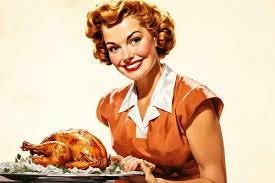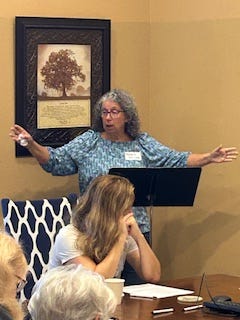After our recent visit to the Anne Frank House in Amsterdam and now in the wake of the recent election, I’ve been reflecting on the ways in which people choose to hide during times of conflict and social upheaval. God has hard-wired into our design the drive to seek refuge. But how, where, and why people choose to pursue safety when things get existentially terrifying reveals a lot about how our moral convictions intersect with that drive.
A couple of World War II-era stories illustrate. The first is the pair of hiding place accounts from Anne Frank and Corrie Ten Boom, both set in the Netherlands. Anne Frank’s diary was penned during her two years in hiding before the family was arrested and sent to Auschwitz-Birkenau, then Bergen-Belsen, where the Jewish teen died in 1945. Her father was the only surviving member of the family. Corrie Ten Boom, who was the only surviving member of her household, detailed her experiences providing short term shelter to a steady stream of people during and after the war before their hiding place was discovered and she was sent to the Ravensbruck concentration camp. Her memoir, The Hiding Place, is a powerful and honest account of faith and forgiveness. These two famous hiding places are about 13 miles apart as the crow flies.
The Ten Boom family were members of the Dutch Reformed Church, which maintained a posture of resistance to their Nazi invaders throughout the war. There were some people who stepped up in small ways and large to engage in acts of quiet disobedience, putting themselves at risk to provide safety to others. The Ten Boom family’s hiding place provided short-term shelter for hundreds of Jewish people and members of the Resistance until it was discovered in February of 1944. They relied on the assistance of other Nazi resisters to help feed, shelter, and move others in hiding to their next stop toward freedom. And there was a small handful of people who quietly lent aid to the Frank family and the other four souls who lived in the attic rooms of a business for two years until that hiding place was raided in August, 1944.
According to the U.S. Holocaust Museum, three-quarters of the Jewish population in the Netherlands were killed in concentration camps. But a good number of the 25,000-30.000 Jewish people who went into hiding in the country survived their ordeal. They didn’t do it on their own. They needed allies like the Ten Booms and others who were willing to resist and disobey the powers-that-be. Those allies believed their own safety was inextricably bound up in the safety of the people who’d been branded “other”, “less than human”, “poisoning the blood of the Aryan race”, and “enemy of the people”.
Those allies were a minority. Most other citizens in the Netherlands during the war chose a different kind of hiding place, in plain sight of their occupiers. Some cheerfully and willingly collaborated with the Nazis. The majority hid by putting their heads down, obeying their new authorities, minding their own business, and doing what they could to survive the war without taking on any additional risk. Understandable. The drive to seek safety is a powerful one.
But it all comes back to how you define safety. And this is a question that we who live in the year of our Lord 2024 must prepare to answer for ourselves.
There are people all around us in America who are now carring heightened concern about their safety. This list includes but is not limited to undocumented immigrants (and some who possess proper papers, but may find themselves in the wrong place at the wrong time), those who are a part of marginalized and minority communities, members of the press, and former government employees and faith leaders who have opposed Donald Trump’s recent run for the presidency.
The question of safety is not a theoretical one for me. I am a writer who is grateful for the First Amendment of the U.S. Constitution that has heretofore allowed me to voice freely my thoughts about faith and culture, but I sense there is the potential for a chilling of that freedom in the coming days. I am a Jewish follower of Jesus, and have been marked by experiences of antisemitism, sometimes from the very people with whom I’ve attended church. I have in my family immigrants who are from countries that are on the current Round `Em Up And Deport `Em list. These family members may possess the proper documents, but in the upcoming frenzy to deport people en masse, I have no sense that any of us are safe. Maybe we never really were, but the sense of danger is certainly amplified now. Authoritarian rule is on the rise all over the world, and authoritarian rule isn’t a safe place for those who aren’t a connected and protected by the person/group in power.
Safety can be a privilege in dark times. This is why the choices made by the average Dirks and Annas who were part of the Dutch Resistance movement notable. They didn’t wake up one day and decide to put their lives at risk to provide care to the people among them who were marked as “vermin” or “enemy”. Dirk and Anna had already made those choices day after day, in all of the mundane moments of their lives.
After the October 7th Hamas attack in Israel last year, I had an elderly friend I hadn’t seen in many years call me with great urgency to ask, “Are you afraid for your family’s safety?” When I said I was concerned (because antisemitism is on the rise everywhere), she told me, “I would drain my bank account to help you if you were in danger. I want you to know that I would hide you if it ever came to that.” Believe me when I say that there are people in America right now who are wondering if there is someone willing to do that for them.
There is an old Jesus music chorus called “You Are My Hiding Place” that quotes Psalm 32:7. I’ve always loved this simple, comforting declaration of trust in God. But today, I realize these words may be a call to action. What does safety look like for you? Is there anyone for whom God may be asking us to risk our own privileged safety and comfort? It is worth prayerfully pondering these questions today because it will be too late to answer the question if the unthinkable happens in your family, church, or community.
On A Slightly More Upbeat Note…
Most of us have family stories are multi-layered, complex, and messy. Whether you plan to gather with family or not over the holidays, maybe you are in the market for a companion to help you make meaning of your own family story. Have I got an offer for you!
I wrote Translating Your Past: Finding Meaning in Family Ancestry, Genetic Clues, and Generational Trauma to help pull together the various threads of your unique family story. Readers have told me it has been an accessible, engaging resource. It might be just what you need to make sense of your own family history.
I will be happy to send a complimentary copy of the book to the very first person reading this newsletter who sends me a request via this contact form. Please include your mailing address (U.S. addresses only, please).
Fill In The Blanks, The Pre-Thanksgiving Edition
How would you fill in these blanks?
My favorite Thanksgiving side dish is: _______
My answer: I recently learned that stuffing is the carb-o-licious filling roasted inside a turkey, and dressing is the name of that filling baked in a casserole dish next to the bird. I am all about the stuffing, drizzled with gorgeous homemade gravy. Everything else is just…well, a side dish.
I am watching: _______
My answer: One favorite that we’re watching right now is the newest season of The Great British Baking Show on Netflix. I love the creativity, camaraderie, and fun that has characterized every episode.
An unfolding news story that has my attention: _______
My answer: Last week, not too terribly far from Anne Frank’s hiding place, a well-organized “Jew hunt” (back in my grandparents day, they called it a pogrom) was unleashed by pro-Palestinian Muslims and sympathizers on Israeli soccer fans who were in Amsterdam for a match. The images of people being chased and ambushed are horrifying. One light in that darkness came in the form of an Israeli Arab Druze man who deflected one group from chasing Israelis. He was their mobile hiding place, and he is a hero. But there wasn’t any place to hide for many, and it was a night of terror…a night of terror that has continued into this week, with many expecting that this kind of activity will continue to spread.
One thing I learned about myself recently: _______
My answer: I was leading a workshop at the church we attend on the subject of the relationship between the transitions in our lives and spiritual growth. Bill snapped a few pictures of me while I was speaking, and I realized that all those people who’ve told me over the years that I talk with my hands were not kidding.
You are my hiding place; you will protect me from trouble and surround me with songs of deliverance. – Ps. 32:7









Wonderfully written-the comparison is so sobering. I help in resettling refugees and I live in Texas. You put words to my thoughts. Thank you!
So beautifully expressed and so needed right now. I'm sharing this. What interesting and frightening times we live in. I'm very close with a refugee family--fully documented and now American citizens. But I still fear for their community and friends.